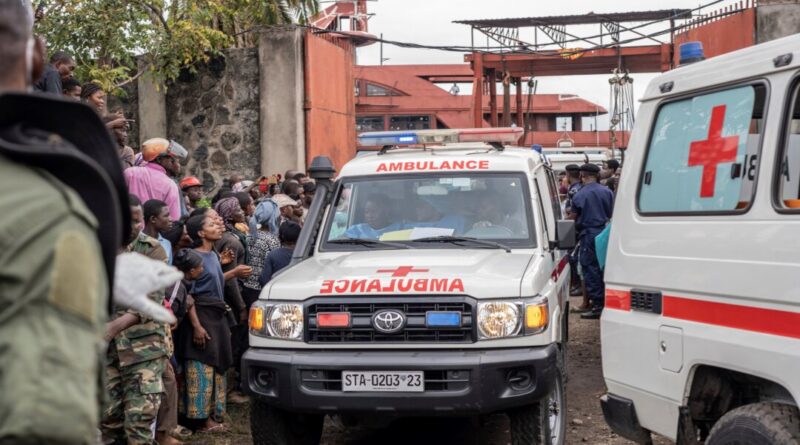Official: Over 78 Dead as Boat Carrying 278 Capsizes in Eastern Congo
GOMA, Congo—At least 78 people died when an overcrowded boat capsized on Lake Kivu in eastern Congo on Thursday, a local governor said. A frantic search and rescue operation was underway hours later as many remained unaccounted for from the vessel, believed to have had 278 people on board.
Jean-Jacques Purusi, the governor of the South Kivu Province, said the death toll was provisional and that the number of fatalities could rise further. He said that according to the information that local authorities had, there were 278 people on board.
The boat set off from the port of Minova, in South Kivu Province, earlier in the day and was en route to Goma, in North Kivu Province, Purusi said, speaking over the phone.
“We do not yet have (the full picture of) the whole situation but we will have it by tomorrow,” he told The Associated Press.
The boat sank while trying to dock just meters (yards) away from the port of Kituku, according to witnesses who said they saw rescue services recover at least 50 bodies from the water.
It was the latest deadly boat accident in the central African country, where overcrowding on vessels is often to blame. Maritime regulations also are often not followed.
Congolese officials have often warned against overloading and vowed to punish those violating safety measures for water transportation. But in remote areas where most passengers come from, many are unable to afford public transport for the few available roads.
“We will establish responsibilities and put in place a sanctions regime but also recommendations to improve navigation on the lake,” Purusi told the AP.
He added that a lack of adequate equipment—there were no life jackets on the vessel—likely contributed to the tragedy, as did the overcrowding and negligence. Also, there had been a strong storm in the morning in the area of the lake, he added.

Women grieve at the port of Goma, Democratic Republic of Congo, after a ferry carrying hundreds capsized on arrival on Oct. 3, 2024. Moses Sawasawa/AP Photo
In June, an overloaded boat sank near the capital of Kinshasa and 80 passengers lost their lives. In January, 22 people died on Lake Maî-Ndombe and in April 2023, six were killed and 64 went missing on Lake Kivu.
Witnesses of the Thursday tragedy said the boat was visibly overcrowded.
“I was at the port of Kituku when I saw the boat arriving from Minova, full of passengers,” Francine Munyi told the AP. “It started to lose its balance and sank into the lake. Some people threw themselves into the water.”
“Many died, and few were saved,“ she added. ”I couldn’t help them because I don’t know how to swim.”
The victims’ families and Goma residents gathered at the port of Kituku, accusing authorities of negligence in the face of growing insecurity in the region.
Since the fighting between the armed forces and the M23 rebels made the road between the cities of Goma and Minova impassable, forcing the closure of the passage to trucks transporting food, many traders have resorted to maritime transport on Lake Kivu. It’s an alternative considered safer than road traffic, which is threatened by insecurity.
But according to Elia Asumani, a shipping agent who works on this line, the situation has become dangerous:
“We are afraid,“ he told the AP. ”This shipwreck was predictable.”
Bienfait Sematumba, 27, said he lost four family members.
“They are all dead. I am alone now,” he said, sobbing. “If the authorities had ended the war, this shipwreck would never have happened.”
The survivors, about 10 of them, were taken to Kyeshero Hospital for treatment. One of them, Neema Chimanga, said she was still in shock.
“We saw the boat start to fill with water halfway,” she recounted to the AP. “The door of the boat opened, and we tried to close it. But the water was already coming in, and the boat tilted.”
“I threw myself into the water and started swimming,” she said. “I don’t know how I got out of the water.”
By Ruth Alonga, Jean-Yves Kamale, and Monika Pronczuk





